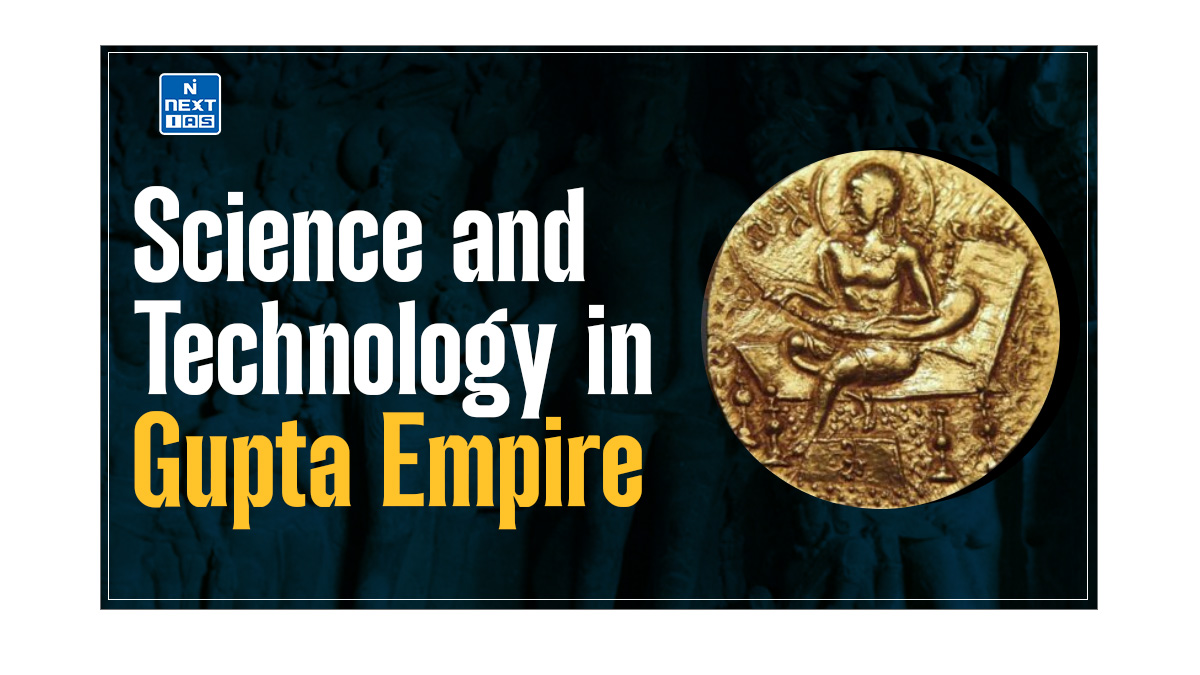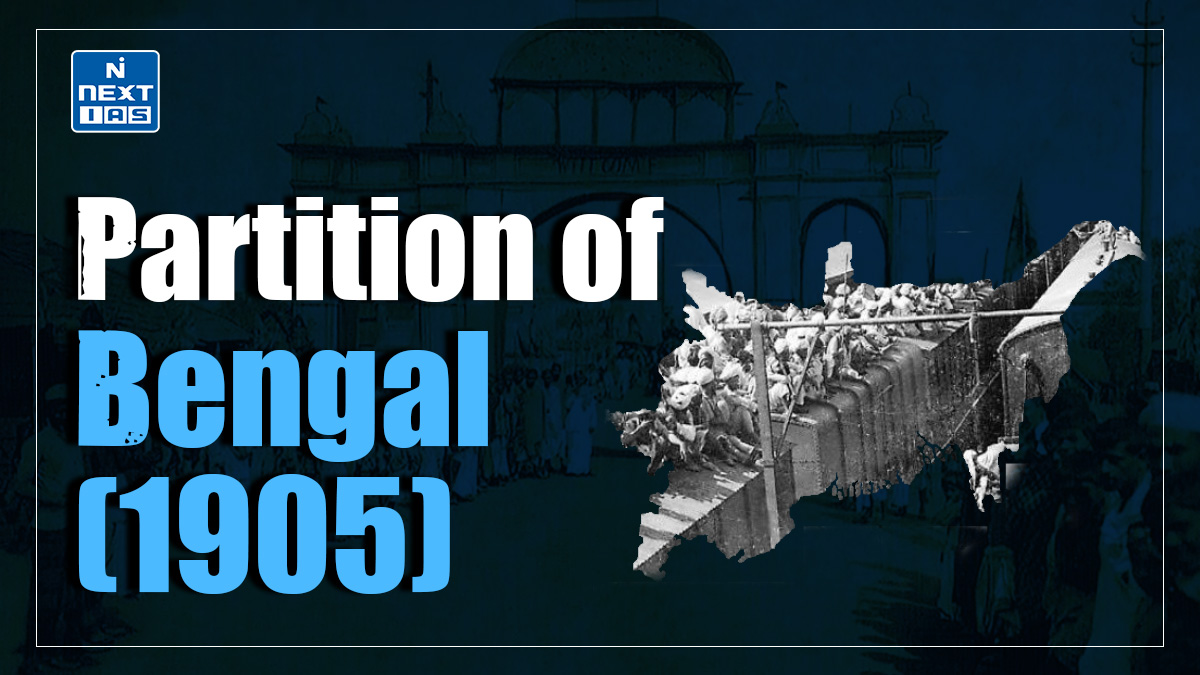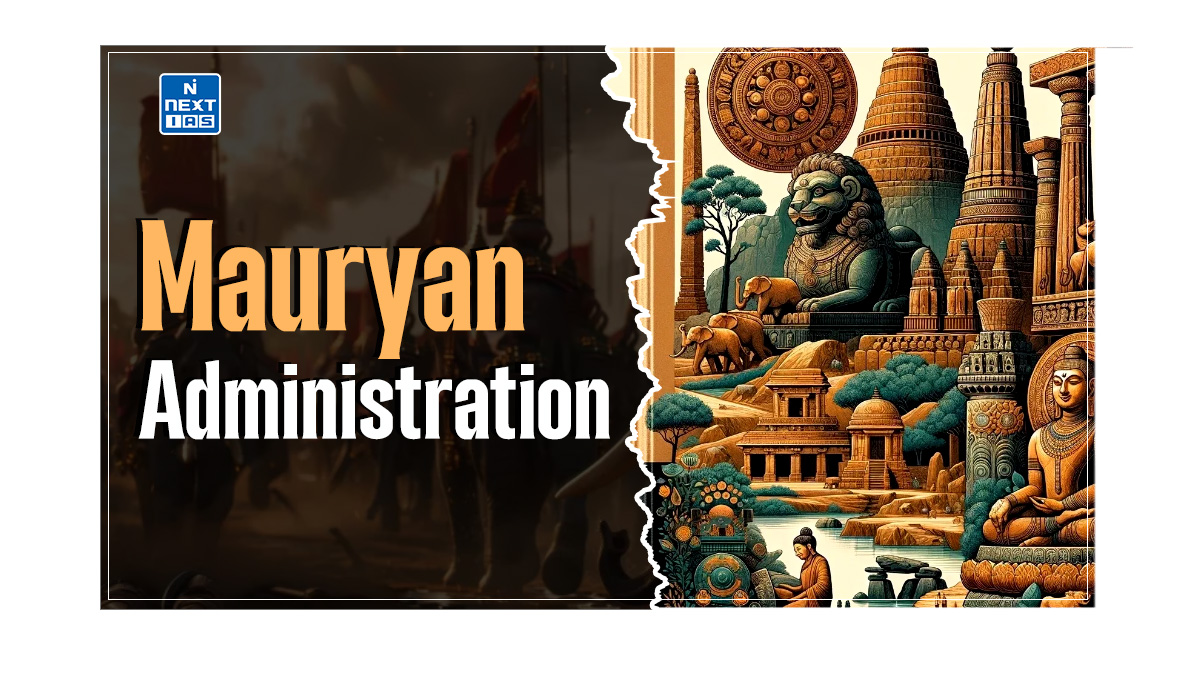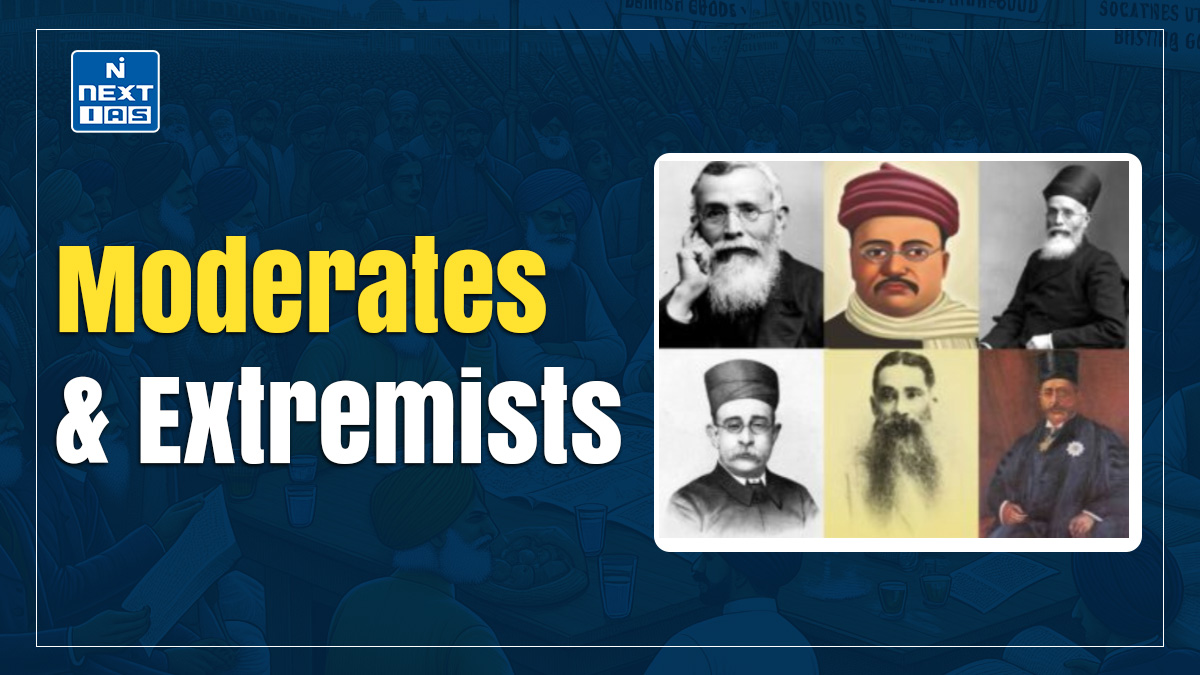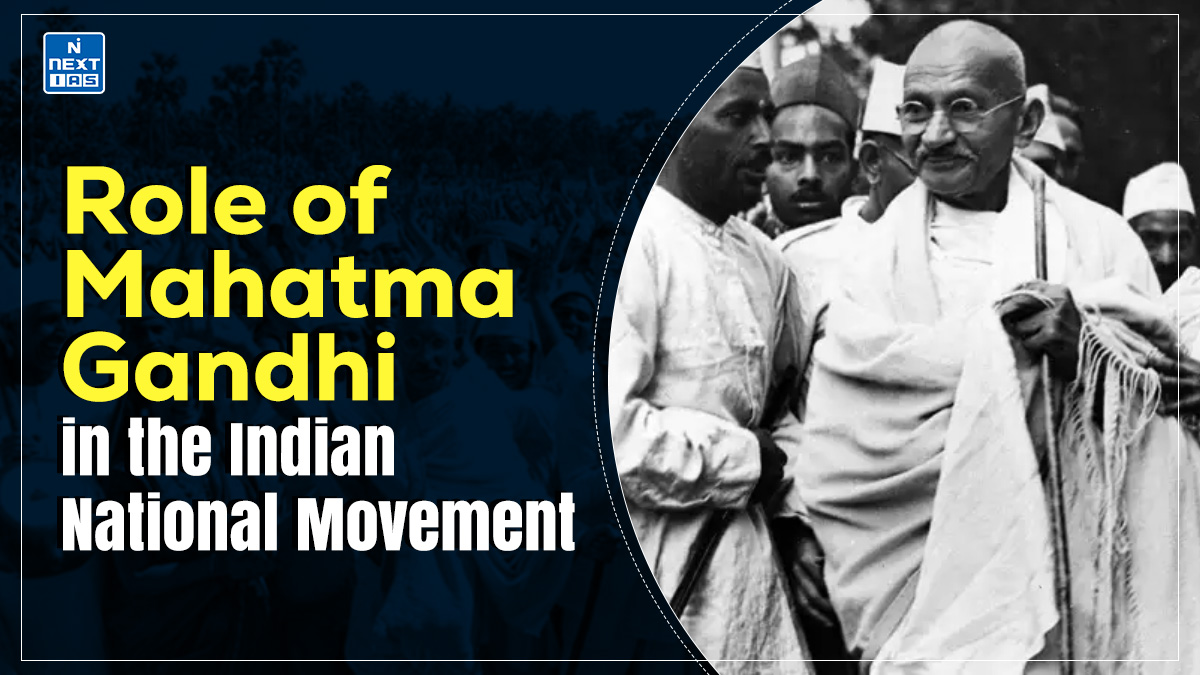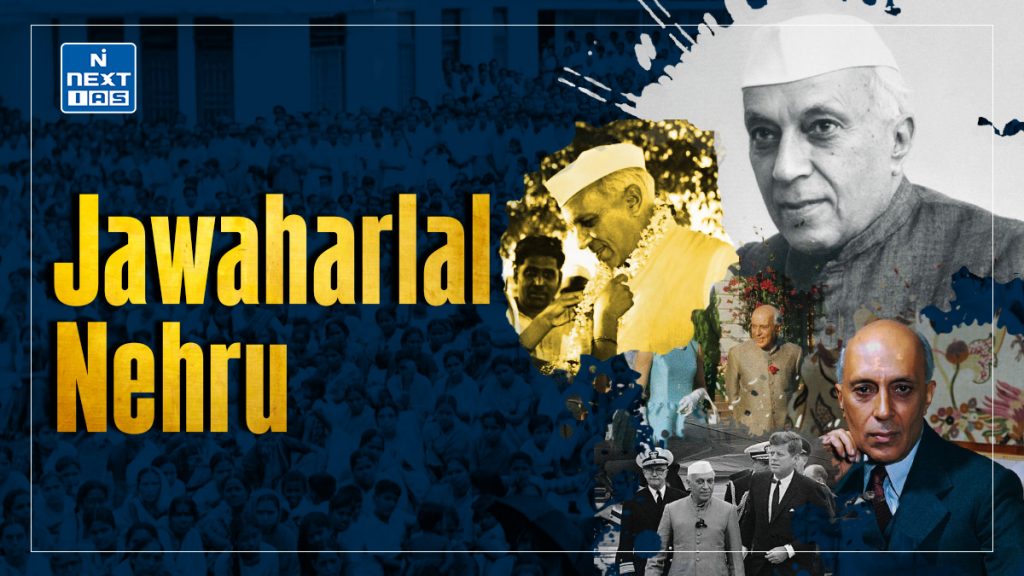
Jawaharlal Nehru, India’s first Prime Minister, played a pivotal role in shaping the nation’s political, economic, and social framework after independence. His vision for a secular, democratic, and industrialised India laid the foundation for its emergence as a modern state. This article aims to study in detail Nehru’s contributions, ideologies, and the lasting impact of his policies on post-independence India.
Early Life and Background of Jawaharlal Nehru
- Born on 14 November 1889 in Allahabad (present-day Prayagraj), Jawaharlal Nehru belonged to an affluent and politically active family.
- Educated in elite institutions like Harrow and Cambridge, Nehru pursued law but soon found his calling in the Indian freedom struggle.
- His association with Mahatma Gandhi in 1919 profoundly influenced his political ideology, steering him toward a lifetime commitment to India’s independence and development.
Political Journey and Ideology of Jawaharlal Nehru
Freedom Movement
Nehru’s entry into the Indian National Congress in 1919 began an illustrious political career. Over decades, he participated actively in the Non-Cooperation Movement, Civil Disobedience Movement, and Quit India Movement.
- Congress Presidency (1929): His presidency at the Lahore session was historic, as Congress adopted the goal of Purna Swaraj (Complete Independence).
- Role in Internationalism: Nehru represented India at global forums such as the League Against Imperialism in Brussels (1927), highlighting the country’s anti-colonial aspirations.
Political Ideology
Nehru’s ideology was shaped by nationalism, socialism, and democratic principles, drawing inspiration from both Fabian socialism and Marxist ideals.
- Secularism: Nehru championed secularism, advocating equal rights for all religions and ensuring secular governance post-independence.
- Socialism: He believed in state intervention to achieve equitable resource distribution, which is evident in his advocacy for the public sector and land reforms.
- Humanism: Nehru emphasised the welfare of marginalised groups, advocating for the upliftment of untouchables, women, and tribal communities through progressive policies like Tribal Panchsheel.
Leadership in Independent India
Prime Ministerial Leadership
As India’s first Prime Minister (1947-1964), Nehru shaped the nascent democracy with a vision of self-reliance and pluralism.
- Constitutional Framework: Nehru contributed to drafting the ‘Objective Resolution,’ which became the Preamble of the Indian Constitution.
- Five-Year Plans: The first Five-Year Plan (1951) focused on agriculture, irrigation, and industrialisation, setting the stage for India’s economic growth.
- Democratic Foundations: Nehru nurtured India’s democratic traditions, ensuring free and fair elections, civil liberties, and an independent judiciary.
Scientific and Technological Development
Nehru envisioned India as a modern, industrialised nation, laying the foundation for institutions that would drive scientific progress and innovation:
- IITs: Created to foster world-class technical education.
- AIIMS: Established for excellence in medical research and healthcare.
- Space Program: His government launched India’s first space program, later achieving global prominence.
Foreign Policy
Nehru was the chief architect of India’s foreign policy, emphasizing non-alignment and peaceful coexistence:
- Non-Aligned Movement (NAM): He ensured India remained neutral during the Cold War, promoting peace and anti-colonialism.
- Panchsheel Principles: These five principles formed the cornerstone of India’s diplomatic relations, especially with neighbouring countries.
- Challenges: Despite his achievements, Nehru faced criticism for misjudging China’s intentions, leading to the Sino-Indian War 1962.
Contributions to Social and Cultural Development
Nehru was deeply committed to building an inclusive society of equality and cultural harmony.
- Women’s Rights: Advocated for gender equality and the codification of Hindu laws to ensure women’s property and marriage rights.
- Education: Promoted universal education and established institutions like UGC to regulate higher education.
- Cultural Heritage: Emphasized preserving India’s rich heritage alongside embracing modernity.
Role of Jawaharlal Nehru in Freedom Struggle
- Jawaharlal Nehru played a pivotal role in India’s freedom struggle, emerging as a prominent leader under Mahatma Gandhi’s mentorship.
- He was deeply involved in the Non-Cooperation Movement and later became a central figure in the Civil Disobedience Movement and the Quit India Movement.
- As the first President of the Indian National Congress in 1929, Nehru demanded complete independence (Purna Swaraj) and hoisted the tricolour flag on the banks of the Ravi River.
- His international outlook helped garner global support for India’s cause, and his vision for a modern, secular, and socialist India laid the foundation for the nation’s post-independence governance.
Differences Between Jawaharlal Nehru and Mahatma Gandhi
Vision of Development
- Mahatma Gandhi: It favored village-centric development and self-reliance through cottage industries.
- Jawaharlal Nehru: It advocated industrialisation and large-scale infrastructure projects as tools for nation-building.
Religion and Secularism
- Gandhi: It believed in spiritualising politics and drew from religious ethics.
- Nehru: It advocated strict separation of religion from politics, championing secular governance.
Struggle Strategy
- Gandhi: It emphasized non-violence and mass mobilisation.
- Nehru: It supported direct action but often relied on institutional reforms and international engagement.
Legacy of Jawaharlal Nehru
Nehru’s leadership defined the trajectory of modern India.
- Publications: Works like The Discovery of India and Glimpses of World History reflect his deep understanding of history, culture, and geopolitics.
- Democracy and Pluralism: His unwavering commitment to democracy and pluralism established India as a stable, secular nation.
- Global Influence: Nehru’s vision of a peaceful and cooperative world inspired generations of leaders and set a high benchmark for statesmanship.
Conclusion
Jawaharlal Nehru’s multifaceted contributions shaped India’s identity as a democratic, secular, and progressive nation. While his policies were not without challenges, his visionary leadership and enduring legacy continue to inspire India’s journey towards development and global prominence.
Frequently Asked Questions (FAQs)
When was Jawaharlal Nehru born?
Jawaharlal Nehru was born on November 14, 1889.
What was Jawaharlal Nehru’s contribution to the Indian Constitution?
Jawaharlal Nehru played a key role in framing the Indian Constitution by chairing the Constituent Assembly’s Objectives Resolution in 1946, which outlined the principles of justice, liberty, equality, and fraternity. His vision emphasised secularism, democracy, and socialism as foundational values for independent India.

